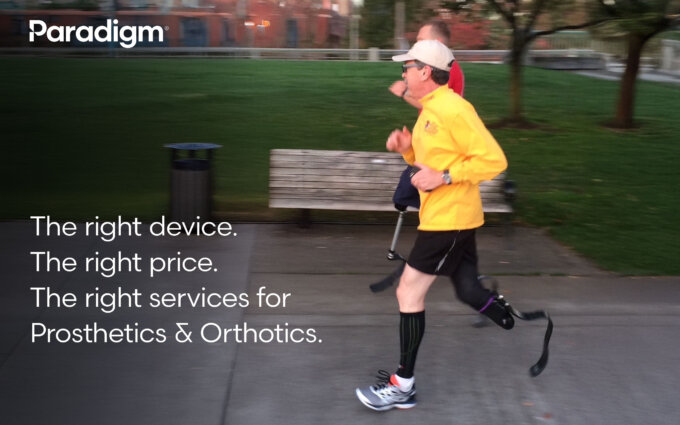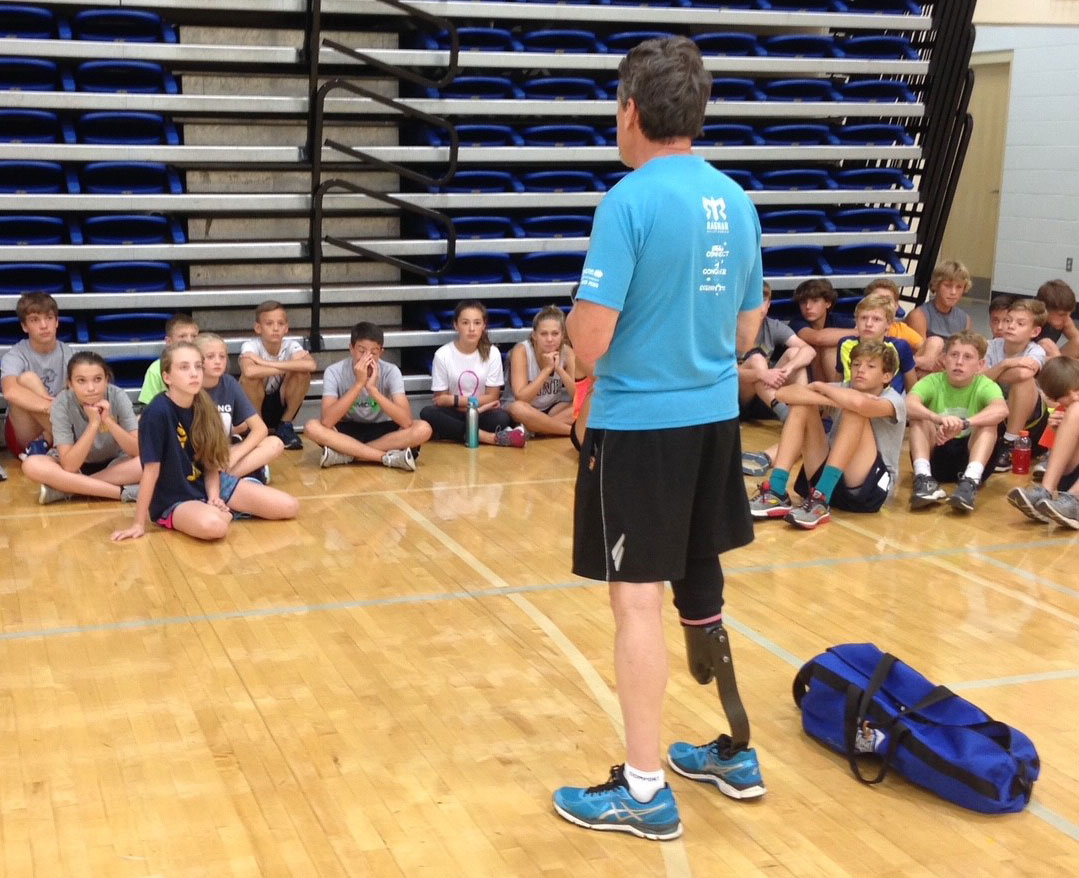07/16/2025

For life-changing limb loss injuries, early intervention and human connection make all the difference.
 In the wake of a devastating workplace injury, Jack Richmond learned that life can turn upside down in an instant. While working in his warehouse job—on a shift that seemed like any other—he was crushed in a forklift accident, resulting in the loss of his right lower leg. Throughout a recovery that left him trying to answer basic questions about who he was now and where to go from here, Jack experienced the colossal impact these injuries have on self-identity, families, and entire communities.
In the wake of a devastating workplace injury, Jack Richmond learned that life can turn upside down in an instant. While working in his warehouse job—on a shift that seemed like any other—he was crushed in a forklift accident, resulting in the loss of his right lower leg. Throughout a recovery that left him trying to answer basic questions about who he was now and where to go from here, Jack experienced the colossal impact these injuries have on self-identity, families, and entire communities.
Despite the incredible obstacles he faced, Jack’s story was ultimately one of progress, and a return to everyday function. In this story on the power of early intervention and advocacy, Jack shares his firsthand experiences on the difference that forming a strong bond with a skilled provider made on his recovery journey. From emotional struggles and uncertainty about his future to the “high” of walking at his company picnic, it took the right mix of specialized expertise and compassionate support to help Jack find his own empowerment.
The critical role of early intervention
Early on in his recovery, Jack remembers falling in his kitchen and feeling completely helpless while lying on the floor. “I broke down and cried—asking why this happened, and wondering how I was going to be able to feed and provide for my family going forward,” he shares. It was a low point, but one that so many people living with limb loss face in one form or another.
In these situations, it’s absolutely critical for injured workers to get the support they need to begin regaining mobility and resuming daily activities as soon as possible. Without focused intervention from the outset, it can be too easy for negative thoughts to take over and become long-term barriers to recovery.
To help overcome negativity and develop a recovery-focused mindset, providers need to be able to form bonds with injured patients and help them see a brighter future. It’s as much about asking questions and understanding needs as it is about device selection and fitting. And for Jack, it was an early moment of connection with his prosthetist, Jan Saunders, CPO, LPO, Clinical Director of Prosthetics, Paradigm, that would help him start to realize that recovery was possible.
More than a prosthesis—the power of listening
At a test fitting for his prosthetic leg, Jack was already starting to feel upbeat and encouraged by his ability to move around independently after being on crutches for weeks. “It didn’t feel anything like my other leg, but even so, I was up and walking!” he says. But what really stood out to him that day was how Jan responded to Jack’s concern after learning his prosthesis would not be ready until the following Monday. As Jack explains, “He paused in that moment, looked in my eyes and saw beyond my one-word question of, ‘Monday?’”
By taking the time to ask if there was something wrong with Monday, Jan learned from Jack that the next day was his company picnic—and he had been hoping to be able to use his new prosthetic leg. “He walked outside the room, picked up the phone, called his wife, and cancelled their dinner plans. He came back and said, ‘Come back at 6:00 and I’ll have your leg ready for you to wear tomorrow.’”
That one small interaction would go on to define so many other moments in Jack’s life going forward. “That day, I was able to stand up and walk among my friends and coworkers, and even though I wouldn’t punch the clock for another month, I feel like I returned to work that day.” Jan’s support helped ease Jack’s anxiety and foster a recovery-focused mindset.
For Jack and so many other injured workers, the ability to move beyond helplessness to hope is made possible through personalized, empathetic, and attentive care. To ensure people with limb loss receive early intervention and a device that is appropriate for their injury, providers need to feel empowered to do the right thing when they see the opportunity.
In that one fitting, and throughout his recovery, feeling seen and heard had such a tremendous impact on Jack. It came from 24/7 access to an experienced and caring CPO who had the information and resources necessary to see to his physical rehabilitation—and the empathy and emotional intelligence to listen and ask the right questions. As Jack puts it, “It requires providers who can focus on the future and help injured workers see their role in helping them achieve that goal.”

A path forward: advocacy in action
Jack’s recovery and his interactions with dedicated providers like Jan didn’t just help him heal—they reshaped the course of his life. Inspired by the care he received and the power of early intervention, Jack pursued a career in prosthetics, becoming an advocate, mentor, and champion for others facing similar challenges. His journey led him to serve as President and CEO of the Amputee Coalition, where he worked to ensure every individual recovering from limb loss had access to the kind of human-focused, timely care that helped him move forward.

From running marathons to mentoring new amputees, Jack continues to lead with purpose—helping companies find better ways to support prosthetic patients and elevating the voices of those often overlooked. His story is one of grit, service, and enduring commitment to a community he proudly serves.
Catch Jack and Jan live at WCI 2025 in Orlando this year. They will share Jack’s compelling story and the power of early intervention.
Discover the value of Paradigm’s Prosthetics & Orthotics solution, which restores independence with the appropriate device at the appropriate price. And when the stakes are highest, our Catastrophic Care Management solution delivers even more—guaranteed outcomes, a highly selective group of leading medical and behavioral health experts, and unmatched financial and clinical certainty in the most complex amputation cases.